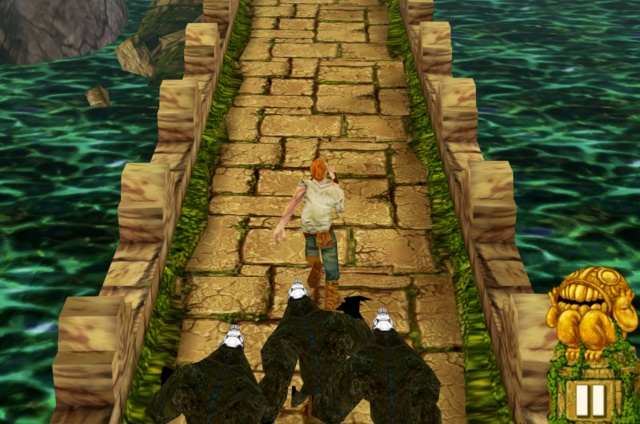Imangi Studios has had a rare hit in Temple Run, whose various versions have now reached more than a billion downloads on mobile devices. That’s a stunning achievement for a game that is not quite three years old. And it’s all the more remarkable that it was created by a three-person team: husband and wife Keith Shepherd and Natalia Luckyanova and artist Kiril Tchangov.
Temple Run started the “endless runner” genre, where you swipe your mobile device’s screen to make a running character move and evade pursuing demonic monkeys or other baddies. Players have been tremendously loyal, playing for a total of 216,018 combined years. And 60 percent of them are women. All told, 50 trillion meters have been run.

Unlock premium content and VIP community perks with GB M A X!
Join now to enjoy our free and premium membership perks.
![]()

![]()